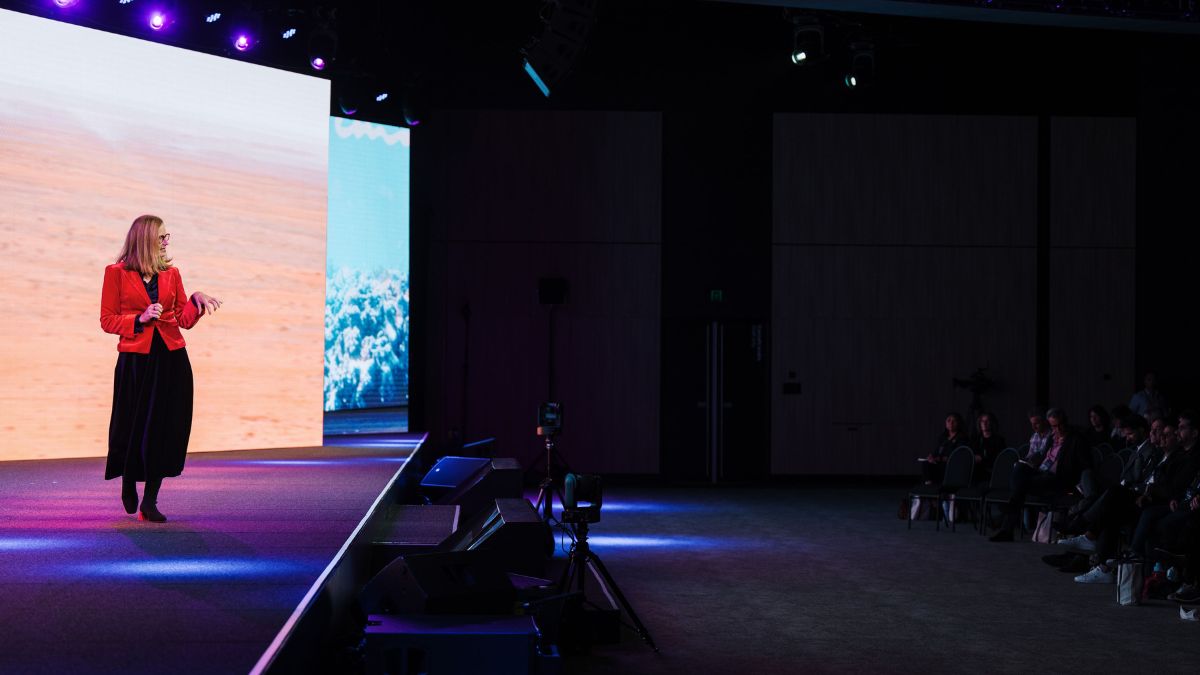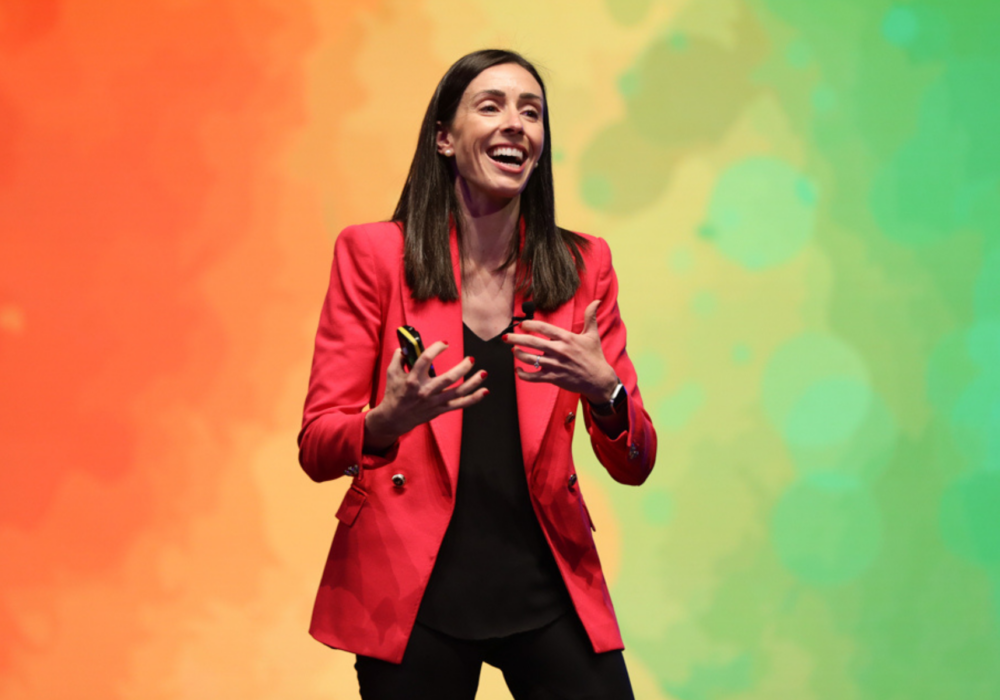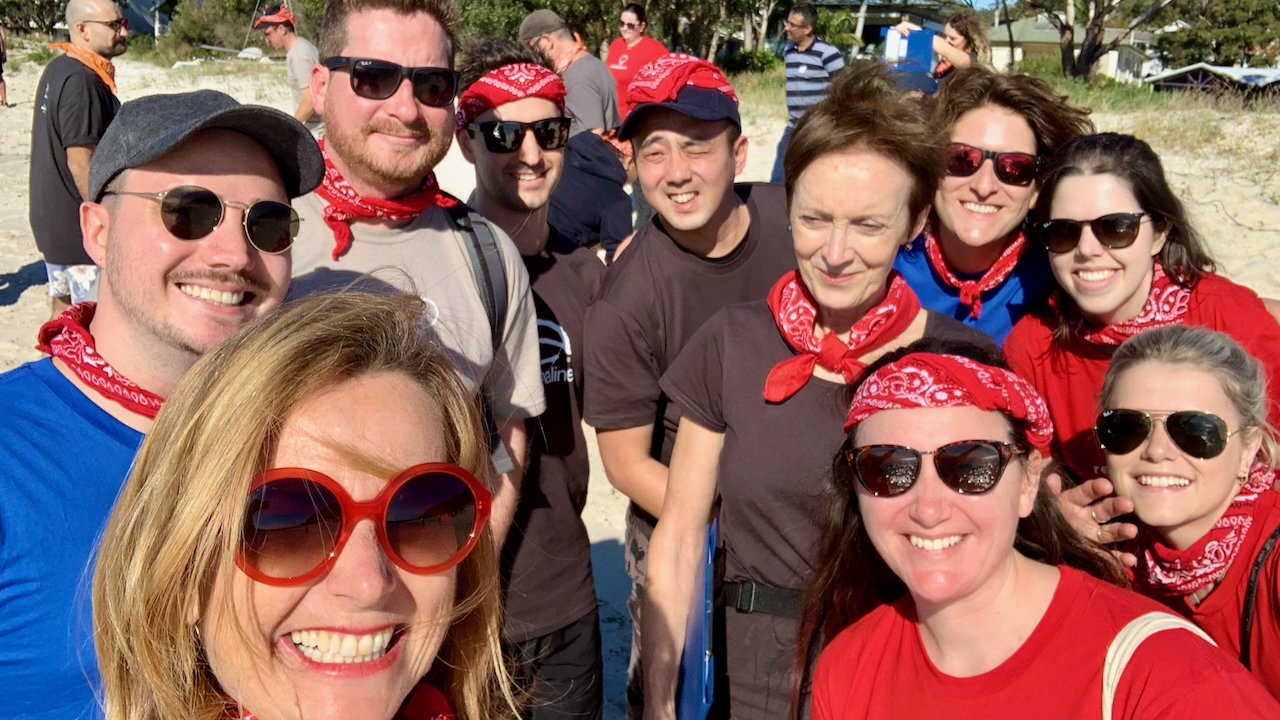There is a palpable buzz in the air of the Australian business community right now. It's a single, two-letter acronym that is dominating every strategy meeting, every conference agenda, and every late-night conversation among leaders.
That acronym is AI.
Artificial Intelligence has exploded from the realm of science fiction into the practical, day-to-day reality of our businesses. The pressure on leaders to "do something about AI" is immense. You are being told that if you are not embracing it, you are already being left behind. This creates a powerful sense of urgency, and often, a significant dose of anxiety.
In response, one of the first and most visible actions many organisations take is to bring in an expert. They start searching for AI keynote speakers to demystify this new world for their teams. This is a smart and necessary first step. But it is also a moment fraught with risk.

Why? Because not all AI conversations are created equal.
I have seen leaders hire brilliant technologists who deliver a mesmerising but terrifying presentation filled with complex jargon, dystopian warnings, and abstract concepts that leave the average team member feeling more confused, anxious, and disempowered than they were before. They walk out of the room thinking, "A machine is coming for my job," not "Here is how I can use this new tool to be better at my job."
After four decades of navigating major technological shifts—from the birth of the personal computer to the dawn of the internet to the rise of social and mobile—I have learned one fundamental truth: technology is only a tool. Its ultimate value is not in its code, but in its ability to enhance our uniquely human capabilities.
This is why, when you are looking to bring an AI keynote speaker into your organisation, your primary goal is not to find the person who knows the most about Large Language Models. Your goal is to find the person who knows the most about people. You need a leader who can frame the entire AI conversation not around the threat of replacement, but around the opportunity for transformation.
Today, I want to give you my definitive, from-the-trenches guide to choosing an AI speaker who will empower your team, not intimidate them. This is about moving beyond the algorithm and into the art of leading through technological change.

The Critical Mindset Shift - The Philosophy Behind the Hire
Before you can choose the right messenger, you must be crystal clear on the right message. The most common mistake is to frame the AI conversation around the technology itself. This is a "what" conversation. A great leader frames it as a "so what?" conversation.
The most powerful and useful framework I have developed for this is a simple philosophy that I have shared many times, including in a recent blog post that I believe is more relevant now than ever: "AI is for tasks, people are for relationships."
This is the essential mindset shift.
- AI is brilliant at tasks: It can analyse data, draft emails, summarise reports, and automate repetitive processes with a speed and efficiency a human can never match.
- People are brilliant at relationships: We are brilliant at empathy, at creativity, at strategic thinking, at building trust, and at genuine human connection.
A great AI keynote is not a lecture on how the technology works. It is a strategic and deeply human conversation about how we can delegate our low-value, repetitive tasks to our new AI co-pilot, in order to free up our most precious resource—our time—to double down on the high-value, uniquely human work of building relationships with our customers, collaborating with our colleagues, and innovating for the future.
When you frame it this way, AI is no longer a threat to our jobs; it is a profound liberation for our potential. This is the message a great AI speaker must be able to deliver.
The Three Types of AI Speaker
Once you have this human-centric philosophy as your North Star, you can begin to assess the different types of AI speakers available. They generally fall into three categories.
1. The Futurist / Technologist:
This speaker is a deep expert on the technology itself. They can explain the difference between generative AI and machine learning, they understand the architecture of neural networks, and they can paint a mind-bending picture of the long-term future.
- Best for: A highly technical audience of engineers, data scientists, or R&D professionals.
- The Risk for a General Audience: Their talk can be too abstract, too jargon-heavy, and can leave a general business team feeling overwhelmed and intimidated. It's often more "wow" than "how-to."
2. The Ethicist / Social Commentator:
This speaker focuses on the big, societal implications of AI. They explore the critical issues of bias, privacy, job displacement, and the ethical guardrails we need to put in place.
- Best for: A public policy forum, a university audience, or a leadership team looking to grapple with the high-level governance of AI.
- The Risk for a General Audience: While incredibly important, this conversation can often feel disempowering for the average employee. It highlights the problems without always providing a practical, actionable playbook for what they can do in their role on Monday morning.
3. The Business Strategist / Practitioner (The Sweet Spot):
This is the speaker who lives at the intersection of technology and commercial reality. They are not just an AI expert; they are a business leader who understands how to translate technological change into tangible strategy.
- Best for: The vast majority of corporate and business audiences.
- Their Superpower: They speak the language of business, not the language of code. They don't just talk about what AI is; they talk about what AI does for your customers, your culture, and your bottom line. They provide practical case studies, actionable frameworks, and inspiring examples of how to use AI to solve real-world business problems. They are the translators who make this complex new world relevant, accessible, and exciting.
When I speak about AI, this is the hat I wear. My entire focus is on demystifying the technology and reframing it as a powerful tool for leadership, for enhancing the customer experience, and for building a more human and purposeful workplace.

AI Keynote Speakers for Australian Leaders
Finding a speaker who sits in that "Business Strategist" sweet spot can be a challenge. You need someone who has both the technical literacy and the real-world business acumen. Here is my personal, curated list of speakers in Australia who I believe master this delicate and powerful balance.
Naomi Simson:
I have to start with my own deep passion for this topic. My entire keynote on AI is built on the philosophy that this is a conversation about leadership, culture, and customer experience, not just technology. I use my four decades of experience, from starting RedBalloon to my work on major corporate boards, to provide a practical, founder-focused playbook on how to leverage AI to augment your team's creativity and to build deeper, more human connections with your customers.
Holly Ransom:
Holly is, quite simply, one of the most brilliant and dynamic voices on the future of work and leadership in Australia. She has an incredible ability to synthesise complex trends and to communicate them with an energy that is both insightful and incredibly engaging. Her work on intergenerational leadership gives her a unique and powerful lens on how AI will reshape our workplaces and the skills our future leaders will need.

Cian McLoughlin:
Cian is a master of the art and science of sales, and he is at the forefront of the conversation on how AI is transforming this critical business function. For any organisation with a sales team, his insights are invaluable. He provides a practical, in-the-trenches look at how to use AI tools to make your sales process more efficient, more data-driven, and ultimately, more human, by freeing up salespeople to do what they do best: build relationships.

Shivvy Jervis:
A powerful futurist who is renowned for her human-centric approach to innovation. Shivvy has a gift for making the future feel tangible, accessible, and exciting. She doesn't just talk about the technology; she talks about the human impact, and she provides a clear and optimistic vision for how we can use these new tools to solve some of our biggest challenges.

Steve Sammartino:
Steve is one of Australia's most respected futurists and authors, and he has been talking about these shifts for years. He has a wonderful, no-nonsense, and often humorous style that cuts through the hype. He is brilliant at explaining complex concepts in simple terms and providing a much-needed reality check on what is truly important in the midst of technological change.

Gus Balbontin:
As the former Executive Director and CTO of Lonely Planet, Gus has lived through profound digital disruption firsthand. His story is not a theoretical one; it's a war story. He speaks with a raw honesty and a powerful clarity about what it takes to adapt, to innovate, and to lead a team through a period of immense uncertainty. His message is a masterclass in resilience and agile thinking in the face of technological change.
The Human-Centric Future
The AI revolution is here. It is not something to be feared; it is something to be understood and harnessed. But as leaders, the conversation we choose to have with our people about this revolution will determine its outcome.
Will it be a conversation of fear, of replacement, of human obsolescence? Or will it be a conversation of opportunity, of augmentation, of liberation?
My belief, and my deep hope, is that we will choose the latter. That we will see AI not as an artificial human, but as an intelligent tool that can free us up to be more creative, more strategic, and more connected than ever before.
Choosing the right AI keynote speaker is your first and most important step in leading that conversation. Don't just hire a technologist. Hire a leader. Hire a strategist. Hire a humanist. Hire someone who can paint a compelling and optimistic vision of a future where technology serves our humanity, not the other way around.
That is a conversation worth investing in.
Frequently Asked Questions (FAQs) on AI Keynote Speaker
What is an AI keynote speaker?
An AI keynote speaker is an expert who specializes in delivering presentations on the topic of Artificial Intelligence and its impact on business, leadership, and society. They are not an AI robot, but a human expert who can demystify complex AI concepts and make them relevant and actionable for a specific audience, from leadership teams to entire organizations.
Why should my organization hire an AI keynote speaker?
Hiring an AI keynote speaker is essential for future-proofing your business. They provide the critical insights your team needs to understand the opportunities and threats presented by AI. A great AI speaker will inspire your audience, demystify the jargon, and equip them with the strategic mindset needed to embrace AI-driven change and maintain a competitive edge.
What topics does an AI keynote speaker typically cover?
An AI keynote speaker can cover a wide range of topics tailored to your event's theme, including the future of work, AI's role in transforming customer experience, practical applications of AI in your industry, the importance of data, the ethical considerations of AI, and how leaders can foster an AI-ready culture of innovation.
How can a keynote on AI benefit our leadership team?
For a leadership team, a keynote on AI provides crucial strategic clarity. It moves the conversation beyond the technical details to focus on the bigger picture: how AI will reshape your industry, create new business models, and impact your workforce. It helps leaders ask the right questions and make informed decisions to steer the organization effectively through this technological shift.
Is an AI keynote only relevant for tech companies?
No, an AI keynote is relevant for every industry. AI is a transformative force impacting healthcare, finance, retail, manufacturing, and professional services. Whether it's optimizing supply chains, personalizing customer journeys, or improving diagnostics, AI is creating disruption and opportunity everywhere. An AI keynote helps non-tech companies understand how to harness this power for their specific context.





